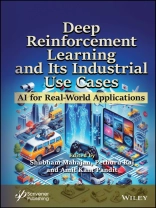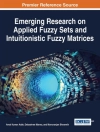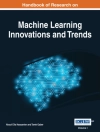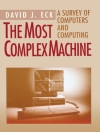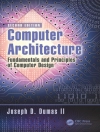This book serves as a bridge connecting the theoretical foundations of DRL with practical, actionable insights for implementing these technologies in a variety of industrial contexts, making it a valuable resource for professionals and enthusiasts at the forefront of technological innovation.
Deep Reinforcement Learning (DRL) represents one of the most dynamic and impactful areas of research and development in the field of artificial intelligence. Bridging the gap between decision-making theory and powerful deep learning models, DRL has evolved from academic curiosity to a cornerstone technology driving innovation across numerous industries. Its core premise—enabling machines to learn optimal actions within complex environments through trial and error—has broad implications, from automating intricate decision processes to optimizing operations that were previously beyond the reach of traditional AI techniques.
“Deep Reinforcement Learning and Its Industrial Use Cases: AI for Real-World Applications” is an essential guide for anyone eager to understand the nexus between cutting-edge artificial intelligence techniques and practical industrial applications. This book not only demystifies the complex theory behind deep reinforcement learning (DRL) but also provides a clear roadmap for implementing these advanced algorithms in a variety of industries to solve real-world problems. Through a careful blend of theoretical foundations, practical insights, and diverse case studies, the book offers a comprehensive look into how DRL is revolutionizing fields such as finance, healthcare, manufacturing, and more, by optimizing decisions in dynamic and uncertain environments.
This book distills years of research and practical experience into accessible and actionable knowledge. Whether you’re an AI professional seeking to expand your toolkit, a business leader aiming to leverage AI for competitive advantage, or a student or academic researching the latest in AI applications, this book provides valuable insights and guidance. Beyond just exploring the successes of DRL, it critically examines challenges, pitfalls, and ethical considerations, preparing readers to not only implement DRL solutions but to do so responsibly and effectively.
Audience
The book will be read by researchers, postgraduate students, and industry engineers in machine learning and artificial intelligence, as well as those in business and industry seeking to understand how DRL can be applied to solve complex industry-specific challenges and improve operational efficiency.
Table of Content
Preface
1. Deep Reinforcement Learning Applications in Real-World Scenarios: Challenges and Opportunities
Sunilkumar Ketineni and Sheela J.
2. Deep Reinforcement Learning: A Key to Unlocking the Potential of Robotics and Autonomous Systems
Saksham and Chhavi Rana
3. Deep Reinforcement Learning Algorithms: A Comprehensive Overview
Shweta V. Bondre, Bhakti Thakre, Uma Yadav and Vipin D. Bondre
4. Deep Reinforcement Learning in Healthcare and Biomedical Applications
Balakrishnan D., Aarthy C., Nandhagopal Subramani, Venkatesan R. and Logesh T. R.
5. Application of Deep Reinforcement Learning in Adversarial Malware Detection
Manju and Chhavi Rana
6. Artificial Intelligence in Blockchain and Smart Contracts for Disruptive Innovation
Eashwar Sivakumar, Kiran Jot Singh and Paras Chawla
7. Clinical Intelligence: Deep Reinforcement Learning for Healthcare and Biomedical Advancements
Keerthika K., Kannan M. and T. Saravanan
8. Cultivating Expertise in Deep and Reinforcement Learning Principles
Chilakalapudi Malathi and J. Sheela
9. . Deep Reinforcement Learning in Healthcare and Biomedical Research
Shruti Agrawal and Pralay Mitra
10. Deep Reinforcement Learning in Robotics and Autonomous Systems
Uma Yadav, Shweta V. Bondre and Bhakti Tha
11. Diabetic Retinopathy Detection and Classification Using Deep Reinforcement Learning
H.R. Manjunatha and P. Sathish
12. Early Brain Stroke Detection Based on Optimized Cuckoo Search Using LSTM‑Gated Multi-Perceptron Neural Network
Anita Venaik, Asha A., Dhiyanesh B., Kiruthiga G., Shakkeera L. and Vinodkumar Jacob
13. Hybrid Approaches: Combining Deep Reinforcement Learning with Other Techniques
M. T. Vasumathi, Manju Sadasivan and Aurangjeb Khan
14. Predictive Modeling of Rheumatoid Arthritis Symptoms: A High-Performance Approach Using HSFO-SVM and UNET-CNN
Anusuya V., Baseera A., Dhiyanesh B., Parveen Begam Abdul Kareem and Shanmugaraja P.
15. Using Reinforcement Learning in Unity Environments for Training AI Agent
Geetika Munjal and Monika Lamba
16. Emerging Technologies in Healthcare Systems
Ravi Kumar Sachdeva, Priyanka Bathla, Samriti Vij, Dishika, Madhur Jain, Lokesh Kumar, G. S. Pradeep Ghantasala and Rakesh Ahuja
References
Index
About the author
Shubham Mahajan, Ph D, is an assistant professor in the School of Engineering at Ajeekya D Y Patil University, Pune, Maharashtra, India. He has eight Indian, one Australian, and one German patent to his credit in artificial intelligence and image processing. He has authored/co-authored more than 50 publications including peer-reviewed journals and conferences. His main research interests include image processing, video compression, image segmentation, fuzzy entropy, and nature-inspired computing methods with applications in optimization, data mining, machine learning, robotics, and optical communication.
Pethuru Raj, Ph D, is chief architect and vice president at Reliance Jio Platforms Ltd in Bangalore, India. He has a Ph D in computer science and automation from the Indian Institute of Science in Bangalore, India. His areas of interest focus on artificial intelligence, model optimization, and reliability engineering. He has published thirty research papers and edited forty-two books.
Amit Kant Pandit, Ph D, is an associate professor in the School of Electronics & Communication Engineering Shri Mata Vaishno Devi University, India. He has authored/co-authored more than 60 publications including peer-reviewed journals and conferences. He has two Indian and one Australian patent to his credit in artificial intelligence and image processing. His main research interests are image processing, video compression, image segmentation, fuzzy entropy, and nature-inspired computing methods with applications in optimization.
